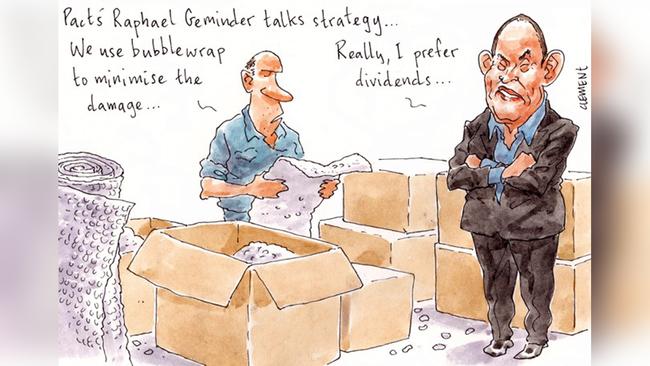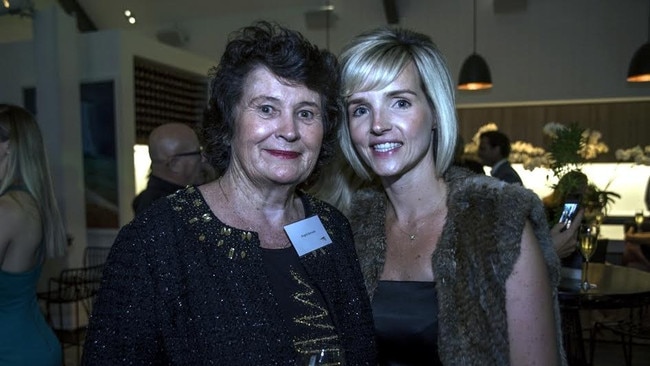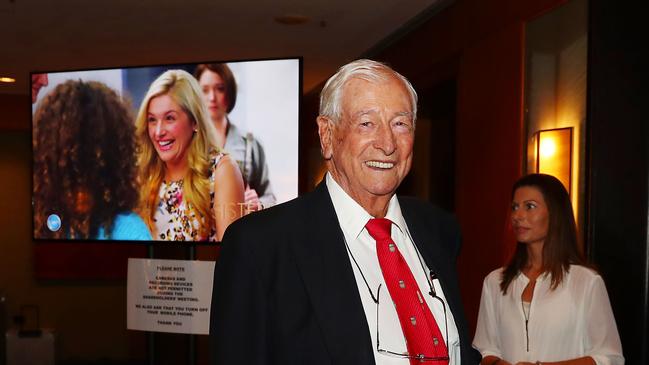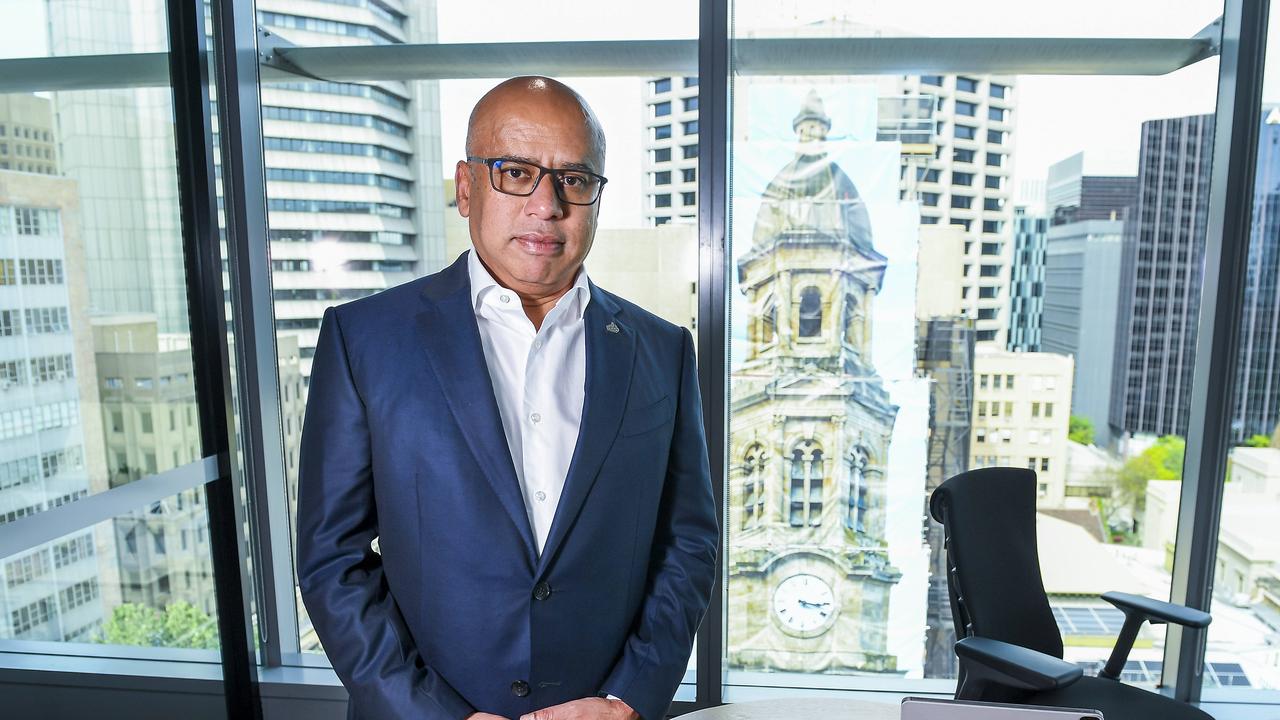Squillionaire Raphael Geminder doing it tough on just $899m

The writing’s on the wall.
Businessman and investor Raphael Geminder is set to relinquish his status as one of Australia’s 100-odd billionaires.
Margin Call has pored over the just-lodged accounts for Geminder’s private investment vehicle Kin Group and the reading is grim.
Relatively speaking.
On The Australian’s inaugural edition of The List, editor John Stensholt estimated the businessman’s wealth at $1.08bn, shooting the Pact Group chairman into the stratosphere of billionaires for the first time.
But that status appears to have been short-lived, with the new Kin Group accounts revealing the group’s net assets have dropped in the past financial year from $1.18bn to $899.5m.
Geminder — along with his wife Fiona (daughter of late cardboard box king Richard Pratt) — have much of their wealth tied up in a more than 40 per cent stake in listed packaging company Pact, which continues to experience difficult trading conditions.
Its shares are at $2.40 from more than $4 in the first quarter of the year, which has struck at the heart of the value of Geminder’s net assets.
Revenue for Kin in the year was $27m, down from $39.6m previously thanks to reduced dividend payments in the year, while a whopping $32.4m provision for doubtful debts has also cratered profitability.
Kin’s bottom line was a loss of $23m, a $41m fall from the group’s $18m gain in the prior year.
Still, when you are the ultimate boss every cloud has a silver lining.
Despite all of the above, Geminder declared almost $40m in dividends for the year.
Because he can.
Listen: Racing, advisers and winners and losers among Australia’s richest
Raking it in
In contrast to Ruffy’s public dramas, another set of just released documents show a trio of publicity-shy mining royalty barons on Stensholt’s Richest 250 people are raking it in.
It has been that way for years thanks to deals the late Peter Wright and his business partner Lang Hancock (the late father of Gina Rinehart) made after pegging tenements in the Pilbara region of Western Australia in the 1960s. The fortunate trio are Perth billionaire Angela Bennett and two of her late brother Michael Wright’s children, Leonie Baldock and Alexandra Burt.

A just filed financial report for their Wright Prospecting reveals the trio shared a cool $172m in dividends this year.
That brings the sum they have collated to a scarcely believable $1.178bn this decade alone.
Not a bad inheritance.
Wright Prospecting has been receiving royalties and partnership income from huge iron ore Pilbara assets that are being developed by Jean-Sebastien Jacques’s mining giant Rio Tinto.
The amounts being paid out every year to Bennett, Baldock and Burt could rise further after Wright Prospecting racked up a court win against Gina Rinehart’s Hancock Prospecting last year after a
17-year legal battle over the high-grade Rhodes Ridge deposit.
Wright Prospecting’s 2019 accounts — lodged with the corporate regulator this week — show it received about $236m revenue from mining royalties and the share of the income it gets from the Wright & Hancock partnership.
That amount is up from $193m last year.
It also sets the scene for what could be a big bumper payday for Rinehart when her Hancock accounts presumably are filed in the near future.
This year she was second on Stensholt’s Richest 250.
Will 2020 be her year?
Logical deal
Seven West Media boss James Warburton is still to pick up the phone and call either Antony Catalano or his billionaire business partner Alex Waislitz.
The pair of Prime Media shareholders — who earlier in the year took regional publisher Australian Community Media off Nine boss Hugh Marks’s hands for $115m — could scupper Warburton’s Prime Media takeover, if they can rustle up a backer or two on the registry.
For now, the two sides are engaged in a game of media chicken.
Late on Thursday, Prime’s long suppressed shares rose 2.5 per cent to close above 20c — far from giddy, but a two-month high nonetheless.
Clearly somebody out there on the Prime share register thinks Warburton and the billionaire proprietor who installed him in the job in August, Kerry Stokes, are going to have to sweeten their bid.
In the Seven crew’s favour is a change of control provision in its affiliation agreement with Prime.
That means if someone else — say a billionaire-backed Catalano — proposed to take over Prime, its most important partner Seven could walk. Not bad leverage.
But as Margin Call understands the highly fluid situation, a rival takeover for the $73m outfit is now unlikely.
That’s despite such a potential transaction featuring in the business plan Catalano and Waislitz have shared over the last five months with everyone from WIN billionaire Bruce Gordon (a fellow interesting Prime shareholder) to Prime chairman John Hartigan to Warburton’s predecessor Tim Worner.

We gather Stokes himself was familiar with the feline regional upstart’s interest.
But that was before Seven pounced first.
Now what?
It seems Prime may emerge under Seven’s ownership, but with a strategic agreement with the ACM duo and their 160-odd regional titles.
People in Stokes’s camp can see some logic in that arrangement.
So can Catalano and Waislitz.
If only someone would pick up the phone.


